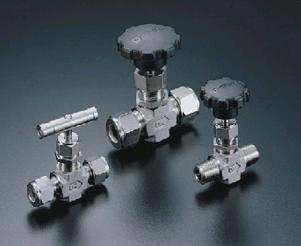While tetrasodium pyrophosphate is generally considered safe for consumption, it is important to note that excessive consumption may lead to health problems such as kidney damage and bone loss. Therefore, it is important to consume it in moderation and as part of a balanced diet.
Tetrasodium pyrophosphate (TSPP) is a white crystalline powder that is used as a food additive and in various industrial applications. It is a water-soluble salt that is composed of sodium cations and pyrophosphate anions.
In the food industry, TSPP is used as a sequestrant, emulsifier, and thickening agent. It is commonly found in processed meat products, canned seafood, and baked goods. TSPP is also used in toothpaste and other oral care products as a tartar control agent.
Tetrasodium pyrophosphate TSPP, buffering agent used in cake Sichuan Jinhe Qihang Co,. Ltd. , https://www.jinhechemicals.com With the discussion of the Nuclear Power Safety Plan (2011-2020) and the Nuclear Power Medium and Long Term Development Plan (2011-2020) and other policies passed, the review gates for nuclear power have restarted, bringing new energy to the nuclear power industry and the upstream and downstream related industries. Opportunity. In the development of nuclear power, instrumentation plays an important role. Nuclear instrumentation and control systems ensure the reliable and safe operation of nuclear power plant units.
With the discussion of the Nuclear Power Safety Plan (2011-2020) and the Nuclear Power Medium and Long Term Development Plan (2011-2020) and other policies passed, the review gates for nuclear power have restarted, bringing new energy to the nuclear power industry and the upstream and downstream related industries. Opportunity. In the development of nuclear power, instrumentation plays an important role. Nuclear instrumentation and control systems ensure the reliable and safe operation of nuclear power plant units.
The commonly used measuring instruments in nuclear power plants include temperature, flow, pressure, and liquid types. For example, thermocouple thermometers, armored thermocouples, thin-film thermocouples, liquid column, strain gauges, and differential pressure gauges, and float-type liquid levels. Meters, differential pressure level gauges, hydrostatic level gauges, radar level gauges, differential pressure flowmeters, rotameters, and electromagnetic flowmeters are widely used in the field of nuclear power. In addition to these conventional measurement instrumentation, the field of nuclear power also requires mechanical measuring instruments such as vibration measurement, displacement measurement, analysis and measurement instruments, boron meters, and large instrument control systems. From the above, we can see the close connection between the nuclear power industry and the instrumentation industry, and see the important applications of instrumentation in various fields of nuclear power.
With the nuclear accident in Fukushima, Japan, nuclear power projects in China are temporarily frozen. With this restart, instrumentation will also usher in huge business opportunities. At present, there are still 14 units under construction in China, and 35 projects are going to start. The installed capacity has reached 51.72 GW. China attaches great importance to the nationalization of major equipment, and the country’s nuclear power equipment production rate is steadily increasing. This has also led to greater development of China’s nuclear power instrumentation. At present, some companies already have the comprehensive research and development capabilities of nuclear power instrumentation, have a complete manufacturing system and quality assurance system, to meet the needs of instrumentation in the field of nuclear power. The nuclear power and nuclear industry areas have increased the localization rate of nuclear power equipment and provided a good development environment for instrument manufacturers in China. Chinese enterprises should seize opportunities to promote their own development and promote the development of nuclear instrumentation equipment.
However, while China's nuclear instrumentation industry has made many developments, it cannot ignore the challenges faced by the industry. Compared with the world level, China's nuclear power instrument independent innovation capability still has a gap, and its dependence on foreign technology is more serious.
Therefore, China's nuclear power instrumentation industry is still not mature enough, in the international market competition, can be a good advantage. With the opening of new nuclear power audits, nuclear safety standards have also been upgraded. This has imposed higher requirements on the technical, performance, and safety of instrumentation. This is undoubtedly a new phenomenon for China's nuclear power instrumentation. The challenge.
Tetrasodium pyrophosphate is a food grade chemical compound that is commonly used as a food additive. It is also known as sodium pyrophosphate tetrabasic or TSPP. It is a white, crystalline powder that is soluble in water.
Tetrasodium pyrophosphate is used as a buffering agent, emulsifier, and thickening agent in various food products. It is commonly used in processed meats, seafood, and dairy products. It is also used in baking powders and cake mixes to help the batter rise.
In addition to its use in food products, tetrasodium pyrophosphate is also used in industrial applications such as Water Treatment, metal cleaning, and as a dispersing agent.